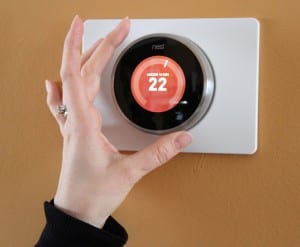More than a third of people would let their energy supplier turn off their heating
By Michael J Fell, on 23 March 2015
 A sinister engineer in orange overalls and dark glasses looms from behind your fridge, hands raised, as if to strike… This is the scenario painted in the Daily Mail in a 2013 article on ‘direct load control’, or the possibility that third parties (‘outside forces’) such as energy suppliers could turn appliances in people’s home off and on to help keep the UK’s electricity system in balance. (more…)
A sinister engineer in orange overalls and dark glasses looms from behind your fridge, hands raised, as if to strike… This is the scenario painted in the Daily Mail in a 2013 article on ‘direct load control’, or the possibility that third parties (‘outside forces’) such as energy suppliers could turn appliances in people’s home off and on to help keep the UK’s electricity system in balance. (more…)
 Close
Close



